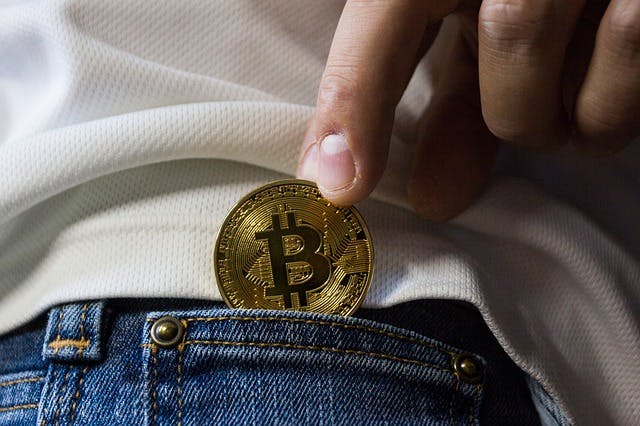If you’re investing gambling on making crypto riches, hopefully none of your capital went into Gibraltar-based ConnectJob.io.
I wrote about the company almost a year ago after it had raised over $1 million on an initial coin offering, or ICO. It had raised that much in about a week. At the time, the company was looking to raise $10 million and was touting a goal of 20 million users by its official launch.
In a post on Medium from May 1, the company announced it had achieved its goal of raising $10 million. “Over 1,600 contributors from across the globe registered on our website and participated in one of the decentralized crowdfunding highlights of the year. Our soft cap requirement was swiftly met, enabling us to smash past with over $10 million raised. We’d like to dearly appreciate each and every one of you for your magnanimous contributions to this remarkable achievement. ConnectJob has truly been blessed by your support and our platform development is well and truly underway.”
Full steam ahead, right?
I hadn’t heard much about the company in the last few months, so I went to checkout what was going on. With the way cryptocurrencies have become infamous with crime on so many levels, I guess I shouldn’t have been surprised things weren’t going well.
There’s no iPhone app. No Android app. The website is gone. No one’s home.
In another Medium post, just three month’s later, CEO Yoni Assouline wrote about the company’s demise. He highlighted a crypto crash and bad partnerships. “As any project we have been fighting against adversity, the infernal downfall of the crypto, more than 70 percent from our highest value vs. Etherum and the loss of large institutional investors was the main issues … We know that we still have a hard work in front of us, but we are determined to be successful in our common project.”
Assouline promised more details would follow, but none ever did. The company signed out from communicating with the public in August. The cryptocurrency still appears to be available on the open market, but it’s a fraction of what it once traded.
I reached out to everyone I could find, from executives like the CEO to contract workers who were around. Only one person talked to me under the condition of anonymity. They said the company had raised a total of $11 million, which fell to roughly $4 million.
“As far as I understood, they didn’t exchange funds in time in a clever way and lost around 70 percent of what they raised. I met everybody face to face. I met Yoni and Jonathan [Gueron] and all the others. So for me, yes the company is legit but are they able to produce what they promised, this is another story. I mean when you plan to scam people you don’t show your face.”
My contact said the company owed them money, and had filed a lawsuit against them at the time we communicated. With the drop in value, my contact said they would’ve walked away with about $4 million. “I believe these people are very bad businessmen, but scam is a judgment call,” my contact added.
It’s worth noting at the time that Moonlighting, a well-funded gig economy-focused startup, was also raising money through an ICO. I reached out to them awhile back for an update, but haven’t heard anything. My guess is it’s on the back-burner at best.
Chad Sowash and I interviewed CEO Jeff Tennery back in February on our podcast. Eight months later, and the landing page to buy tokens is still online, but nothing is happening. And as far as finding any mention of an ICO on Moonlighting’s homepage, well, good luck.
Mid-18th century showman P.T. Barnum is credited with saying, “There’s a sucker born every minute.” With our interconnected world, if Barnum lived in today, he might revise that quote to every second instead.
Update: Moonlighting CEO and founder Jeff Tennery issued the following statement after reading this story. My original request for comment from him went unanswered because he rarely checks Twitter messages.
“We have postponed our token sale to 2019 to focus on our international growth, and the use of blockchain technology,” said Tennery. “Investors and freelancers who were ready to buy our token have elected to buy equity shares in the company to help us fuel our expansion into Canada and the UK by year end. As a legitimate company with real users (approaching 700,000) and real revenues we were not willing to risk launching until the markets and regulators sorted the security vs. utility token designations. Our plan is to continue to scale the platform globally with our media partners and will be announcing an exciting new blockchain partnership this quarter that will allow us to execute on our token strategy in the new year.”
